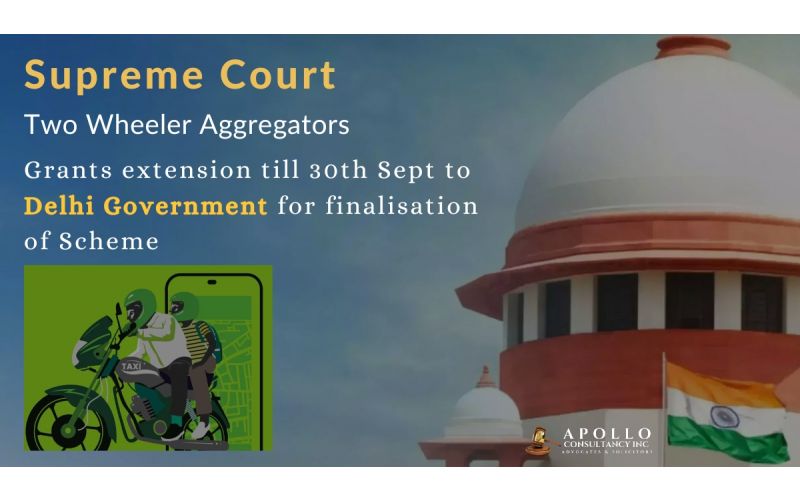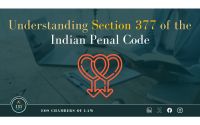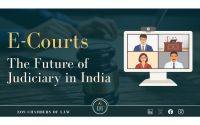Motor Accident Claims | No Right To Recovery For Insurer Mer

Motor Accident Claims | No Right To Recovery For Insurer Merely Because Vehicle Owner Didn't Verify Driver's License : Supreme Court
The Supreme Court on Monday (30th October) held that an insurance company cannot claim that it is not liable to pay compensation in a motor vehicle accident claim just because the vehicle owner did not verify the genuineness of the driving licence of the driver employed. The Court said that the burden is on the insurance company to prove that there was a failure on the part of the vehicle owner in carrying out due diligence with regard to the drivers’ licence of the driver employed.
A bench of Justice CT Ravikumar & Justice Sanjay Kumar said that it would be impracticable to expect every person employing a driver to verify and confirm whether the driving licence produced by the driver is a valid and genuine one. “..once a seemingly valid driving licence is produced by a person employed to drive a vehicle, unless such licence is demonstrably fake on the face of it, warranting any sensible employer to make inquiries as to its genuineness, or when the period of the licence has already expired, or there is some other reason to entertain a genuine doubt as to its validity, the burden is upon the insurance company to prove that there was a failure on the part of the vehicle owner in carrying out due diligence apropos such driving licence before employing that person to drive the vehicle” the Apex Court said.
The Supreme Court also expressed shock at insurance companies pursuing such matters till the Apex Court, when the question of law is well settled.
“These legal propositions being so well settled, it is indeed shocking that insurance companies deem it appropriate to raise such pleas as a matter of course, without reference to the facts of the given case and/or the evidence available therein, and also consider it necessary to carry such matters in appeal till the last forum, unmindful of the wastage of valuable curial time and effort!” the Court said.
In the matter at hand, the Appellant Insurance Company approached the Apex Court challenging the order of the Delhi High Court that reversed the award passed by the Motor Accident Claims Tribunal granting the right of recovery to the Insurance Company. The Insurance Company filed the appeal before the Supreme Court, aggrieved by the denial of right of recovery from the vehicle owner.
The incident in question involved an accident where a person suffered fatal injuries due to the rash and negligent driving of a Tempo. The dependents of the injured, approached the Motor Vehicle Claims Tribunal for compensation. The Tribunal held that the insurance company would not be liable, due to a breach of the terms and conditions of the insurance policy by the vehicle owner.
The insurance company argued before the Apex Court that it was not liable to pay compensation, as the owner of the vehicle failed to verify the genuineness of the drivers’ licence, which turned out to be fake.
The Court observed that there is no requirement under Section 149(2)(a)(ii) of the Motor Vehicle Act,1988 or in the ‘Driver Clause’ of the insurance policy in question, that the owner of the insured vehicle must, as a rule, get the driving licence of the person employed as a driver verified and checked with the concerned transport authorities.
“Generally, and as a matter of course, no person employing a driver would undertake such a verification exercise and would be satisfied with the production of a licence issued by a seemingly competent authority, the validity of which has not expired. It would be wholly impracticable for every person employing a driver to expect the transport authority concerned to verify and confirm whether the driving licence produced by that driver is a valid and genuine one, subject to just exceptions” the Court said.
The Court observed that no evidence had been brought on record to show that the vehicle owner ought to have gotten the driving licence verified by the concerned transport authority. The Court observed that the insurance company failed to prove any willful breach by the vehicle owner and hence it would have no right to recover the compensation amount from the owners of the vehicle.
“In effect and in consequence, the petitioner-insurance company cannot blithely claim that the deceased vehicle owner did not conduct due diligence while employing Ujay Pal as a driver, by now insisting upon a condition which was neither prescribed in the statute nor in the insurance policy. More so, an unrealistic condition that every person employing a driver must get the driving licence of such driver verified and confirmed by the RTO concerned, irrespective of the actual necessity to do so,“ the Court observed.
The Court thus refused to interfere with the order of the Delhi High Court.
Case Title: IFFCO Tokio General Insurance Co. Ltd. V. Geeta Devi and others., Special Leave Petition (C) No. 19992 of 2023
Post Categories
Featured Posts
Latest Posts
Latest Posts

Inheritance and Succession Laws What Every NRI Should Know...
For Non-Resident Indians NRIs navigating inheritance and succession laws in India can be complex Whether dealing with ancestral property inheriting assets or managing family estates NRIs must understand the legal framework to safeguard their rights and avoid disputes Here are...

Corporate Social Responsibility and Legal Obligations - Navigating the Legal Aspects of CSR Initiatives...
Corporate Social Responsibility CSR has evolved from a voluntary initiative to a crucial component of modern business strategy In today's globalized economy companies are expected to contribute positively to society while maintaining profitability However CSR is not just about corporate...

Supreme Court Grants Extension Till September To Delhi Government For Finalisation Of Scheme Two...
The Supreme Court on Monday directed the Delhi government to finalise the Delhi Motor Vehicle Aggregator and Delivery Service Provider Scheme for regulation of two wheeler aggregators by September The Division Bench of Justice Aniruddha Bose and Justice...

Supreme Court To Form Panel Of Experts To Evaluate Carrying Capacity Of Hilly Areas...
In order to determine the nbsp ldquo carrying capacity rdquo nbsp of overcrowded hill stations in Uttarakhand Himachal and other Himalayan states affected by landslides the Supreme Court on Monday decided to form a panel of experts on environment and...

ADR in Family Law Benefits and Challenges...
Alternative Dispute Resolution ADR has become a pivotal tool in family law offering a way to resolve disputes without the need for contentious court battles At Eos Chambers we've observed the growing reliance on ADR methods such as mediation arbitration...

Anti-Money Laundering AML Compliance Best Practices for Law Firms...
In today's globalized economy money laundering poses a significant threat to financial systems and institutions including law firms As facilitators of various financial transactions law firms are often targeted by money launderers seeking to legitimize illicit funds Anti-Money Laundering AML...

Speak With Our
Get a Appointment
















